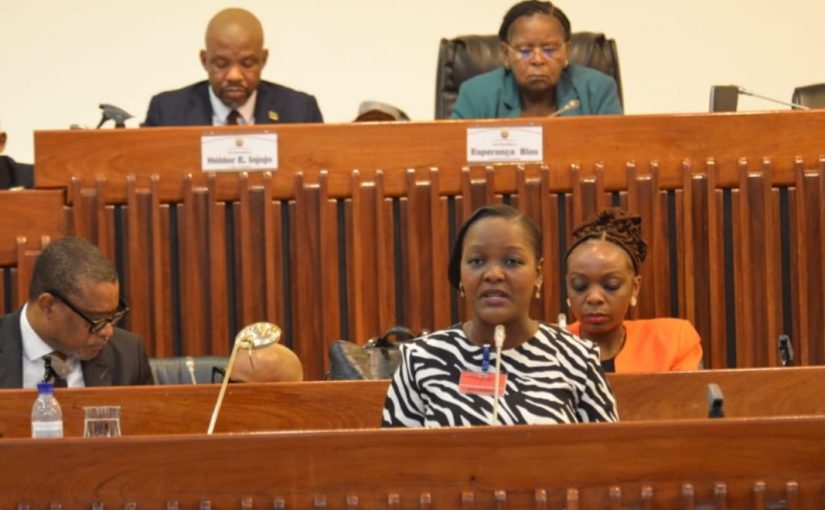Mozambique: Léo Cote and Mélio Tinga win the Mia Couto Prize
Mozambique: Parliament ratifies Charter for African Cultural Renaissance

Photo: Ministério da Cultura e Turismo
The Assembly of the Republic, the Mozambican Parliament, on Wednesday (26) passed, unanimously, the second reading of the draft resolution ratifying the African Cultural Renaissance Charter.
The main focus areas of the Charter include promotion of African identity, shared values, the spirit of Pan-Africanism and African Renaissance.
It also includes development of the creative economy of the continent; protection and conservation of African World Heritage Sites and increasing of African sites in the World Heritage List; development and continued dissemination of regional and continental programs for the promotion of African identity, shared values, cultural and creative industries and heritage
Mozambique’s Culture and Tourism Minister, Eldevina Materula, explained that the Charter also seeks to ‘combat and eliminate all forms of alienation, exclusion and cultural pressure in all parts of Africa and encourage cultural cooperation between member states to strengthen the unity of African nations, through the use of African languages, as well as encouraging dialogue between cultures”.
According to the minister, the ratification of the Charter is in compliance with the provisions of Mozambique’s Constitution and other legal instruments that determine the protection of tangible and intangible assets of the Mozambican cultural heritage.
Materula assures that Mozambique’s accession to an international African mechanism for cultural promotion meets the aspirations of the government and of Mozambique, especially ‘at a time when the culture sector is internationally recognised as a driver of inclusive and sustainable economic development, contributing to the reduction of social inequalities in Africa.
‘The Charter will provide Mozambique with opportunities to develop practices and strategies that respond to the current challenges that the government faces in arts and culture, and also to agree and consolidate positions with other states,’ she said.
Underlying the concept of African cultural renaissance is the recognition of culture as one of the main driving forces for achieving the vision of the African Union (AU) for the consolidation of peace, integration, democracy and sustainable development.
The Charter was first adopted in 1976 in Mauritius by the Heads of State and Government of the then Organisation of African Unity (OAU) and amended through a Protocol in 2006 in Sudan.
To date, 17 of the AU’s 55 member states have ratified the document.
The parliament also passed the second reading, by consensus, the Bill revising the foreign exchange law and the law establishing the legal regime for bank accounts.













Leave a Reply
Be the First to Comment!
You must be logged in to post a comment.
You must be logged in to post a comment.